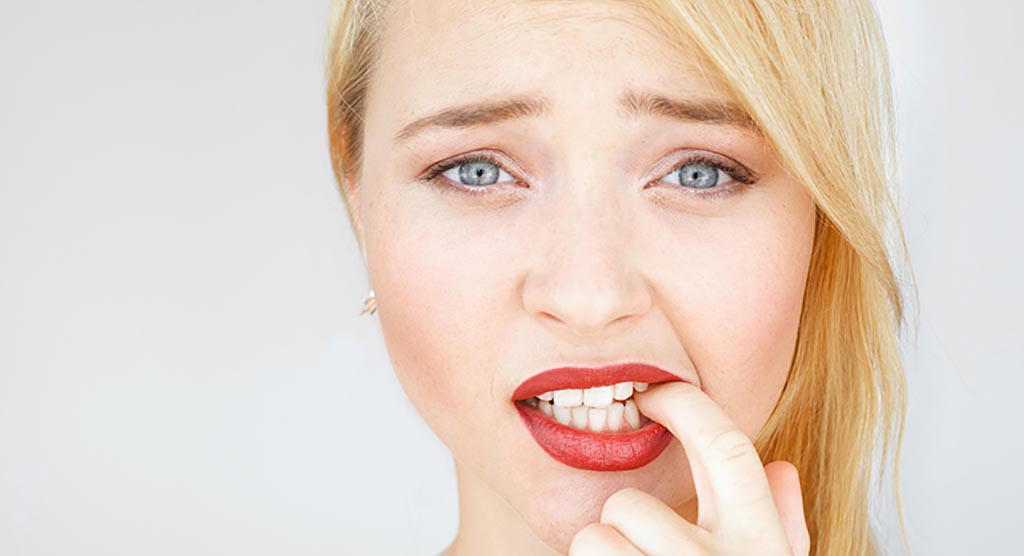Want to know the big secret the cosmetic industry is working hard to keep quiet? Most of your cherished cosmetic brands – even the ones you thought were boutique, all-natural, organic or gluten-free – are owned by a handful of huge companies.
When you scroll through your Instagram and Facebook feeds, you can’t avoid the bold claims made by cosmetic companies. Virtually every brand claims their products are unlike any other on the market by promoting a one-of-a-kind ingredient, specific certifications, cruelty-free and organic claims or an age-reducing effect as their selling point. The battle for your dollar is an ongoing war in the cosmetic industry. But what these brands don’t tell you is that once a corporation buys out a smaller company in the industry, the uniqueness of the product is often what gets cut first.
Though from the looks of the shelves there are hundreds of unique cosmetic brands, all the beauty products you see at the mall or in your favorite drug store are actually owned by a handful of major companies. For example, certain brands, like Maybelline and Ralph Lauren, are owned by one parent company – L’Oréal. Surprisingly, other natural cosmetic brands well known for taking a stance on natural formulas, cruelty-free commitments and eco-friendly focuses are owned by parent companies that don’t share the same values. For example, in 2007, natural cosmetics leader Burt’s Bees was purchased by The Clorox Company, famous for household bleach and other household cleaning products. Most recently in 2016, Seventh Generation, another natural products leader known for natural cleaners and natural baby products, was purchased by personal products giant Unilever.
Your favorite products may have begun as cruelty-free or all-natural, but these smaller independent cosmetic companies are constantly being purchased by the huge cosmetic companies in the industry. Once that has happened, your once niche, eco-friendly and natural cosmetic products will likely undergo a synthetic makeover. Many large companies make their sourcing and formulation decisions based on different values than the values held by your original boutique cosmetic owner. With a big business lean towards maximizing profits and appeasing shareholders, the once prized unique qualities of a product (paraben-free, natural, organic ingredients, vegan, cruelty-free) often fall by the wayside.
If moral or ethical convictions narrow down your cosmetic brand buying choices, you need to know that brands falling under a company umbrella have a lot in common, and ingredient sources are one of them. If your brand loyalty is rooted in specific reasons like products being cruelty-free, certified gluten-free, natural, or organic, then knowing the current owner’s ethical ingredient sourcing, manufacturing practices and social commitments would be beneficial. If the company changes hands, the packaging may not but the underlying ingredients and practices may take a turn.
Be sure to check the labels when your eyes gravitate to your long-time favorite brand when browsing mascara or face cream. You may be surprised to find that the ingredients, certifications or manufacturing country of origin have changed. When you see drastic changes in the formula, certifications or origins of your favorite products, there is a strong likelihood that your brand’s been sold to one of the giants. For the most part, the giant cosmetic companies are not certified cruelty-free and do engage in animal testing. While the smaller natural cosmetic brand they own may remain certified cruelty-free, the larger animal testing parent company is still profiting off your supporting dollar. Where your dollar ultimately ends up and what business principles it supports is definitely something to consider next time you ‘vote with your wallet’ when making that natural cosmetic purchase.
Even if you don’t pay that much attention to the ethical standards of cosmetic products, you probably still want your next face wash or makeup product to include natural and organic ingredients. Unfortunately, when a natural cosmetic company is bought out by a large conglomerate, fair trade, and certified organic ingredients are the first to fall off the priority list due to their high cost. The giant cosmetic companies first master is their shareholder… not the consumer. After a small company is bought out the first priority is streamlining the company’s operations, reducing costs and maximizing profit. This is why ingredients, sourcing, and certifications change for the worse.
More toxic synthetic ingredients, paraben preservatives, and irritating PEG are added to formulas to ensure stability and the ability to maximize profit. These synthetic ingredients buy companies additional years of shelf-life per product run. They are great for profit margins at the expense of consumers’ health.
The following is not a complete list of who owns what. I chose instead to highlight the most commonly recognized brands to give you an overall taste of how very few players dominate most of the brands we have come to think of as independent companies. Here’s the lowdown of who owns what in the cosmetic industry:
THE CLOROX COMPANY
Founded by five entrepreneurs in 1913 and originally named Electro-Alkaline Company, The Clorox Company, launched in its namesake product, an industrial bleach. This now giant company struggled in the first few years until the general manager’s wife inspired the creation of a less concentrated form of the industrial bleach for home use. The Clorox Company is still focused on household cleaners and kitty litter with one odd cosmetic exception.
The Clorox Company owns the following cosmetic and personal care brands:
Burts Bee’s
L’OREAL
Founded in 1909 by chemical engineer Eugene Schueller, the creator of the first hair dye, L’Oréal is one of the largest cosmetic companies on the market. A claim to fame of L’Oréal is the production of the first widely available soap-free shampoo.
L’Oreal owns the following cosmetic and personal care brands:
The Body Shop
Biotherm
Carol’s Daughter
Clarisonic
DermaBlend
Essie
Garnier
Giorgio Armani
IT Cosmetics
Kerastase
Kiehl’s
La Roche Posay
Lancome
Maybelline
NYX
Pureology
Ralph Lauren
Redkin
Sanoflore
Shu Uemura
SkinCeuticals
Urban Decay
Vichy
Yves Saint Laurent
ESTEE LAUDER
Estée Lauder used to be a high school student mixing face creams in her home kitchen. A year after launching her company in 1946, Estee Lauder products were sold in Saks Fifth Avenue. Clinique and Origins are brands personally engineered by Lauder.
Estée Lauder owns the following cosmetic and personal care brands:
Aveda
BECCA Cosmetics
Bobbi Brown
Bumble and Bumble
Clinique
Darphin
DKNY
Donna Karan
Estée Lauder
GlamGlow
Jo Malone
La Mer
M∙A∙C
Michael Kors
Origins
Prescriptives
Smashbox
Tom Ford
Too Faced Cosmetics
Tory Burch
PROCTOR & GAMBLE
Proctor & Gamble has been around forever – or since 1837, if anyone is keeping track. P&G was started by candle-maker William Procter and soap maker James Gamble. What started out as a business to fill the Civil War Union army with candles and soap led to a business that fills drugstore shelves with a variety of products.
Proctor & Gamble owns the following cosmetic and personal care brands:
Art of Shaving
Clairol
CoverGirl
Crest
Dolce & Gabbana
Gillette
Head & Shoulders
Ivory
Max Factor
Natural Instincts
Olay
Old Spice
Pantene
Secret
SK-II
Tampax
Wella
JOHNSON & JOHNSON
Johnson & Johnson is the gold standard of sterile surgery nationwide. A company started in 1888 by three medically-minded New Jersey brothers now sells face washes and baby powder.
Johnson & Johnson owns the following cosmetic and personal care brands:
Aveeno
Clean & Clear
Johnson’s Baby
Lubriderm
Neutrogena
Rogaine
LVMH
What does that stand for? Louis Vuitton Moet Hennessy. If you are a luxury cosmetic connoisseur, then you know their products.
LVMH owns the following cosmetic and personal care brands:
Acqua di Parma
Benefit Cosmetics LLC
Christian Dior Beauty
Fendi Perfumes
Fresh
Givenchy Perfums
Guerlain
Kenzo Parfums
Make Up For Ever
Marc Jacobs Beauty
NUDE
Parfums Christian Dior
Parfums Givenchy
Sephora (store’s namesake cosmetic line)
SHISEIDO
This Japanese company is older than any beauty company. Beginning in 1872 as a pharmacy, it now sports a list of brands ranging from French to American.
Shiseido owns the following cosmetic and personal care brands:
Bare Escentuals
Clé de Peau
Joico
Laura Mercier
NARS Cosmetics
Senscience
Shiseido
KAO
If you appreciated the benefit of blackhead strips in your teenage days, you have Kao to thank. Originally a soap company, this Japanese corporation is behind many of your favorite cosmetic brands.
Kao owns the following cosmetic and personal care brands:
Biore
Curel
Goldwell
Guhl
Jergens
John Frieda
KMS
Laurier
Molton Brown
BEIRSDORF
In 1880, Paul Carl Beiersdorf used his pharmacy to sell a wide price range of skin care products that are still on the market today.
Beirsdorf owns the following cosmetic and personal care brands:
Nivea
Eucerin
La Prairie
Labello
KENDO
If you shop at Sephora, then you likely purchase Kendo products. The youngest of the bunch, Kendo, began in 2010 and now supplies big name brands you probably recognize.
Kendo owns the following cosmetic and personal care brands:
Bite Beauty
Formula X
Kat Von D
Marc Jacobs Beauty
OleHenriksen
Brand loyalty is great, as long as you know the brand and what’s in your makeup. Does your natural cosmetic brand walk the talk after the buyout?



I like your writing style and I’m truly enjoying this website.
I’m not that much one of those people who engage with an article, to be honest ,but this one is truly eye-opener! Just bookmarked a few of your other posts for later. Many thanks